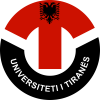Environmental communication is a practical discipline that enables understanding of complex environmental issues and strengthens the role of individuals and organizations in environmental governance. Environmental communication serves to raise awareness, change behaviour, influence public opinion, advocate for policies, address conflicts and pass legislation.
We provide the non-degree Online Programme on Environmental Communication to educate pioneers of environmental communicators in all sectors of society – civil society, businesses, media, academia and government. The citizens` involvement in environmental management and protection depend, largely, on their level of awareness about environmental issues. By increasing availability of and access to environmental information, citizens can become an important non-state actor against the environmental degradation and climate change.
Who can attend our programme?
All interested to participate in public environment protection discussions from diverse academic levels and backgrounds:
- Citizens and Civic Initiatives – who demand solutions by the public officials about local environment problems and who organize other citizens to take action.
- Civil Society Organisations (CSOs) – who inform, raise awareness, and suggest solutions to sustainability and environmental problems.
- Educators, Researchers and Scientists – who are advisors and communicators of their findings in published reports, editorials, blogs, documentaries, and more.
- Public Officials and Politicians – who make environmental information accessible and foster wider support in creating environmental policies and implementation of legislation and policy objectives.
- Businesses – who impact the business sector in regards to their interests in the environmental sphere, from lobbying governments on decision making to promoting public relations through campaigns.
- Journalists and Communication Practitioners – who share information and amplify voices of citizens, public officials, corporate spokespersons and academics for holding governments and industries accountable, supporting critical thinking and judgments, and influencing public attitudes and decisions about environmental matters.
Why choose our programme?
Innovative Curriculum
Environmental communication is a new discipline that integrates communication and natural resources management techniques. It will enable you to use and translate data into meaningful information for ecological problems and processes, and create awareness and better understanding of the growing environmental and climate change concerns of populace.
New Field of Career and Research Opportunities
Open up your career opportunities across the media and creative industries, civil society, academia, government and industry. Get know-how and skills for environmental management or for extending the communication techniques to various environmental components, which have only recently started to be explored such as climate change, urban resilience to natural disasters, air pollution and biodiversity.
Flexible Learning
Learn at your own pace and on a more feasible schedule that transcend the traditional pathway to degree and credentials. Online learning allows you to improve your knowledge at any stage in life, and study from your home or workplace. If you want to blend your formal education with modularized online coursework, if you are not mobile due to work or family commitments, if you don't have time or financial means for traveling during your education, or if you are constrained by disability, this online programme perfectly fits to your needs. You can choose to follow a six-months programme of 5 courses or attend one or several courses separately and receive ECTS credits for the entire programme or for each course.
Virtual Mobility and Collaborative Learning
Reach out to peers you have never made contact with in your community. Learn, work and interact with students and lecturers from different countries and gain transnational experience and intercultural understanding. If you are employed, maintain you full-time positions while learning tangible new skills and networking with other professionals without the time or expense of travel.
Free-of-charge Programme
The participation in this programme will be free-of-charge for all, increasing the educational opportunities particularly for economically and socially disadvantaged participants.
Recognition of Microcredentials
After completing the program, you will obtain a certificate and 30 ECTS credits by five higher education institutions (HEIs). Professional certification will enhance your resume and prospects for employment or career promotion through validating your competencies to perform tasks in this specific field of expertise. The certificate and ECTS credits can also accelerate your formal degree particularly on the study programs administered by the HEIs programme implementors.
Programme Implementors
The five HEIs bring to this programme their significant experience in environment and communication, access to diverse expertise and knowledge, and networking at national, regional and international level.


The programme is funded by the ERASMUS+ Programme of the European Commission through the National Agency for European Educational Programmes and Mobility of North Macedonia.
Consortium Board
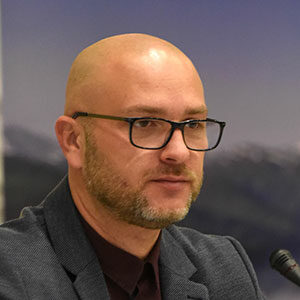
Dejan Andonov, MA
Macedonia
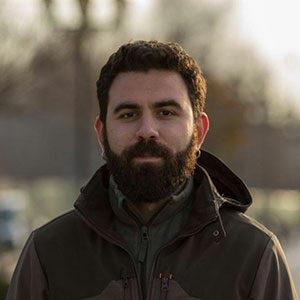
Kiril Arsovski, MSC
Macedonia

Ass. Prof. Zaneta Trajkoska
Macedonia

Prof. Dr Sc. Neven Duić
Croatia
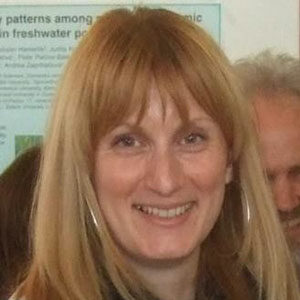
Ass. Dr Dušanka Cvijanović
Serbia

Ass. Prof. Mihallaq Qirjo
Albania
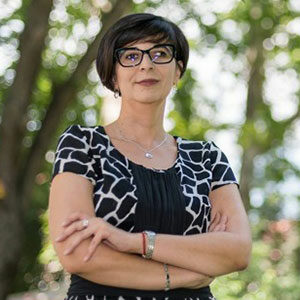
Prof. Dr Sci. Lejla Turčilo
Bosnia and Herzegovina

Prof. Dr Valbona Aliko
Albania

Asst. Prof. Tomislav Pukšec
Croatia

Prof. Dr. Sci. Belma Buljubašić
Bosnia and Herzegovina

Maja Novkovic, MA
Serbia

